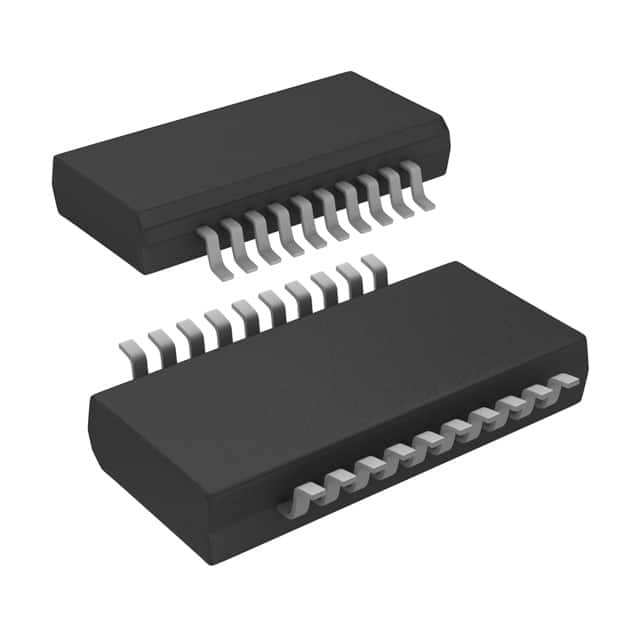PLL1706DBQR
Overview
Category
PLL1706DBQR belongs to the category of integrated circuits (ICs).
Use
It is commonly used as a phase-locked loop (PLL) in electronic devices.
Characteristics
- PLL1706DBQR is known for its high precision and stability.
- It offers excellent frequency synthesis and clock recovery capabilities.
- The IC has low power consumption and operates efficiently.
Package
The PLL1706DBQR is available in a compact and durable package, suitable for surface mount technology (SMT) applications.
Essence
The essence of PLL1706DBQR lies in its ability to synchronize and stabilize signals in electronic systems.
Packaging/Quantity
The IC is typically packaged in reels or tubes, with varying quantities depending on the manufacturer's specifications.
Specifications and Parameters
The following are the key specifications and parameters of PLL1706DBQR:
- Input Voltage Range: 2.7V to 5.5V
- Operating Temperature Range: -40°C to +85°C
- Frequency Range: 1MHz to 100MHz
- Output Clock Jitter: <1ps RMS
- Supply Current: 10mA (typical)
Pin Configuration
The pin configuration of PLL1706DBQR is as follows:
| Pin Number | Pin Name | Description | |------------|----------|-------------| | 1 | VCC | Power supply voltage input | | 2 | GND | Ground reference | | 3 | REFIN | Reference input signal | | 4 | VCOOUT | Voltage-controlled oscillator output | | 5 | CLK_OUT | Clock output | | 6 | PD | Power-down control input | | 7 | NC | No connection | | 8 | NC | No connection |
Functional Characteristics
The functional characteristics of PLL1706DBQR include:
- Frequency synthesis and multiplication
- Phase and frequency detection
- Voltage-controlled oscillator (VCO) control
- Clock recovery and synchronization
Advantages and Disadvantages
Advantages
- High precision and stability
- Excellent frequency synthesis capabilities
- Low power consumption
- Compact package suitable for SMT applications
Disadvantages
- Limited frequency range (1MHz to 100MHz)
- Requires external reference signal
Applicable Range of Products
PLL1706DBQR is widely used in various electronic devices, including:
- Communication systems
- Data storage devices
- Audio and video equipment
- Test and measurement instruments
- Industrial automation systems
Working Principles
The working principle of PLL1706DBQR involves the following steps:
- The reference input signal (REF_IN) is compared with the feedback signal from the VCO.
- The phase and frequency difference between the two signals are detected.
- The control circuit adjusts the VCO frequency to minimize the phase and frequency difference.
- The synchronized clock output (CLK_OUT) is generated.
Detailed Application Field Plans
PLL1706DBQR finds extensive application in the following fields:
- Wireless communication systems: Used for frequency synthesis and clock recovery in wireless transceivers.
- Data storage devices: Enables precise timing and synchronization in hard disk drives and solid-state drives.
- Audio and video equipment: Provides stable clock signals for audio and video processing circuits.
- Test and measurement instruments: Used in signal generators and frequency counters for accurate signal generation and measurement.
- Industrial automation systems: Ensures precise timing and synchronization in control systems and PLCs.
Detailed Alternative Models
Some alternative models to PLL1706DBQR include:
- PLL1707DBQR
- PLL1708DBQR
- PLL1709DBQR
- PLL1710DBQR
- PLL1711DBQR
5 Common Technical Questions and Answers
Q: What is the maximum frequency range of PLL1706DBQR? A: The maximum frequency range is 100MHz.
Q: Can PLL1706DBQR operate with a single power supply voltage? A: Yes, it can operate with a voltage range of 2.7V to 5.5V.
Q: Does PLL1706DBQR require an external reference signal? A: Yes, it requires an external reference input signal.
Q: What is the typical supply current of PLL1706DBQR? A: The typical supply current is 10mA.
Q: What is the output clock jitter of PLL1706DBQR? A: The output clock jitter is less than 1ps RMS.
This concludes the encyclopedia entry for PLL1706DBQR.


